Health And Medicine
-

Bacterial signals in sarcoidosis
Study adds evidence for infectious agents’ role in sarcoidosis, an inflammatory condition that can lead to respiratory failure and death. Read MoreNov 6, 2012
-

Toxin provides endometriosis clues
Environmental toxins may contribute to endometriosis-related infertility by disrupting endometrial response to progesterone. Read MoreNov 2, 2012
-

Green tea found to reduce rate of some GI cancers
Green tea may lower risk of some digestive cancers. Read MoreOct 31, 2012
-
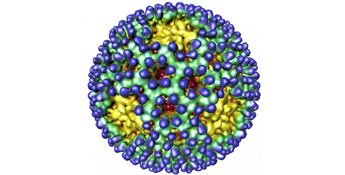
Protein’s length, flexibility key to infection
The structural architecture of the reovirus attachment protein is required for efficient reovirus infection of host cells. Read MoreOct 31, 2012
-

CNN: Fiscal cliff ensnares science and research
Pampee Young, associate professor of pathology, microbiology and immunology, is one of many U.S. scientists whose research funding will be compromised by the impending enactment of the Budget Control Act (the "fiscal cliff") if Congress does not resolve the budget impasse. Read MoreOct 29, 2012
-
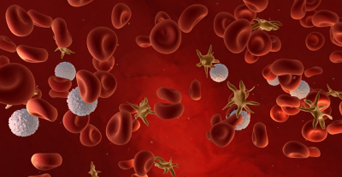
Bid protein guards blood cells against stress
A protein normally known to promote cell death found to encourage survival of blood forming cells. Read MoreOct 25, 2012
-
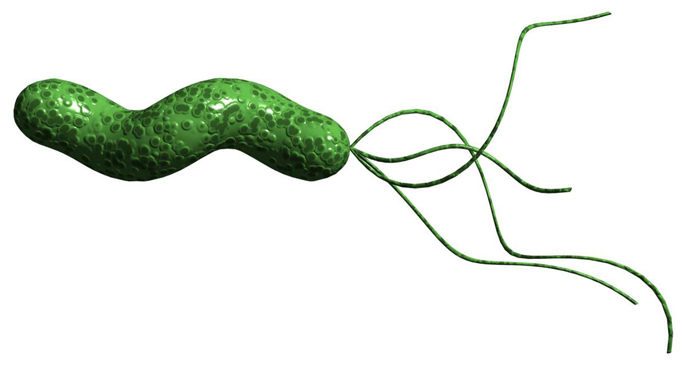
Stomach bug alters tumor suppressor
The stomach bug Helicobacter pylori increases forms of a protein that promote tumor development, perhaps explaining how it elevates risk for gastric cancer. Read MoreOct 23, 2012
-
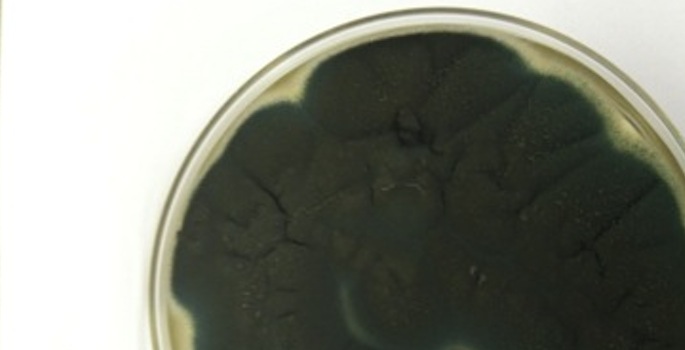
The Tennessean: Vanderbilt team details TN meningitis death
The New England Journal of Medicine has published a detailed account by April Pettit and colleagues at Vanderbilt University describing one man’s rapid deterioration after receiving a tainted steroid injection for back pain from the New England Compounding Center in Framingham, Mass. Read MoreOct 22, 2012
-

More gene links to breast cancer risk
Two newly identified gene variants linked to breast cancer may aid in predicting disease risk and targeting screening and prevention strategies. Read MoreOct 19, 2012
-
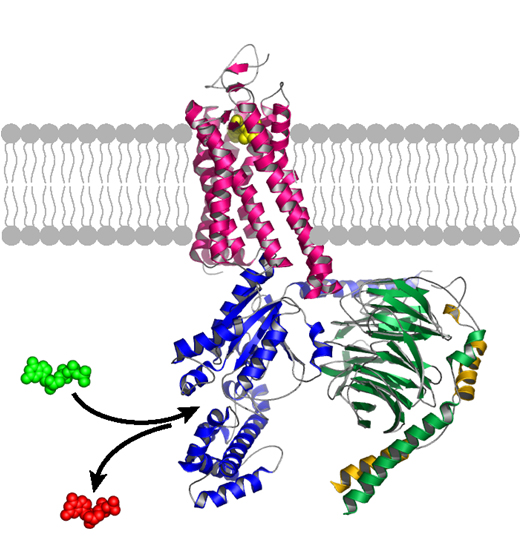
Nobel in Chemistry reveals VU ties that bind
Several Vanderbilt researchers have collaborated with this year's Nobel Chemistry winners. Read MoreOct 18, 2012
-

Improved patient ‘handover’ process bolsters outcomes
Patient handovers matter. A lot. That’s the conclusion from Vanderbilt researchers who reviewed three years of patient data and found that major complications occurring within 24 hours after cardiac surgery were cut in half following the adoption of an improved handover process. Read MoreOct 18, 2012
-
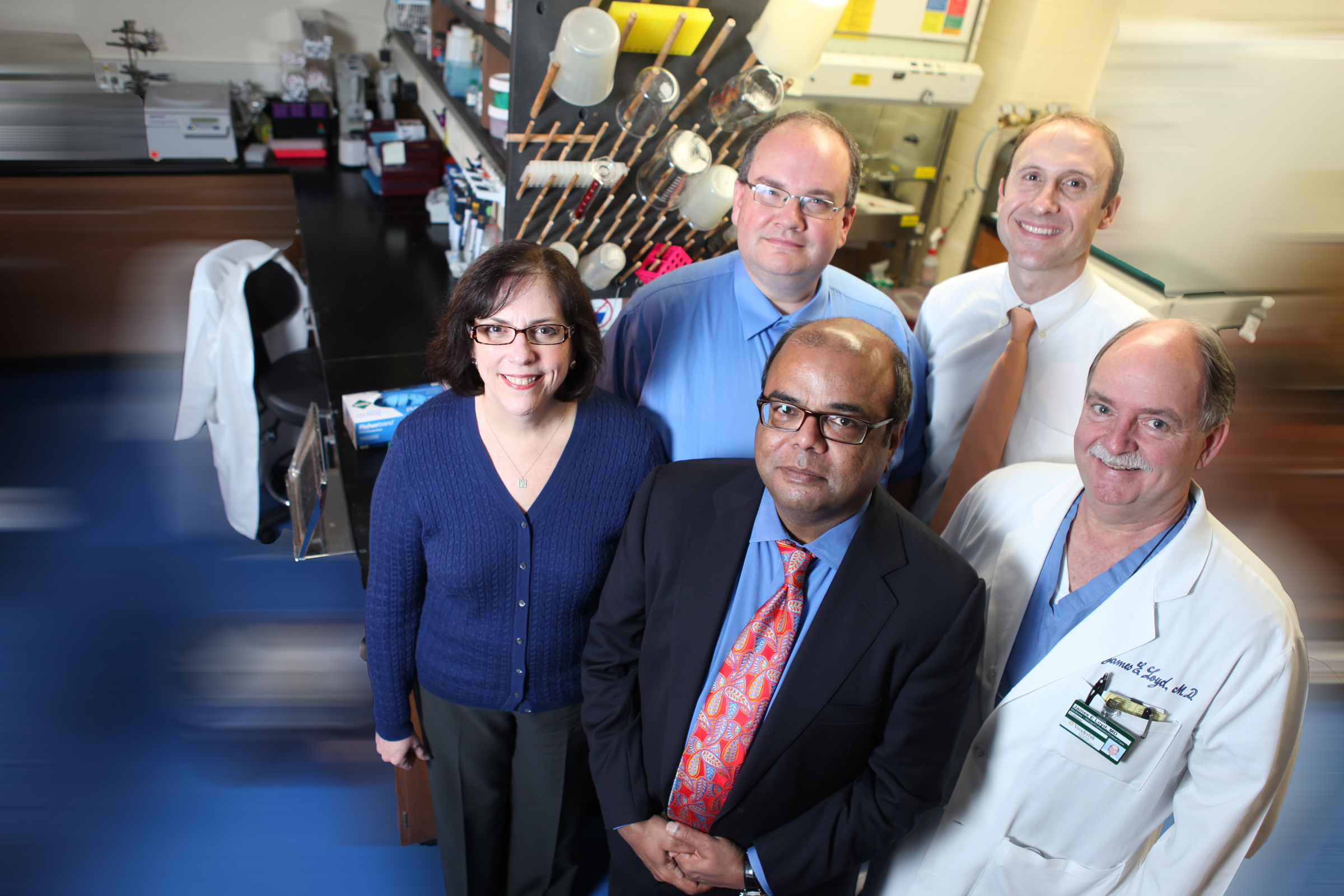
Gene regulation found to play role in pulmonary hypertension
New findings from Vanderbilt researchers may explain why only some individuals who have inherited mutations that increase risk for pulmonary hypertension actually develop the disease. Read MoreOct 18, 2012
-

Setting traps to probe gene function
A new method for creating genetic mutations that can be activated at certain times or in specific tissues will enable studies to probe gene function. Read MoreOct 18, 2012
-
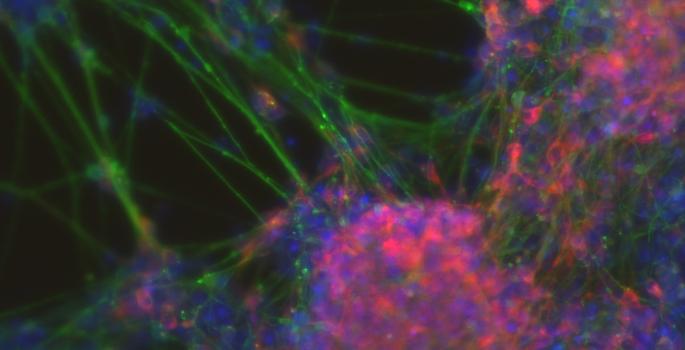
VU scientists cheer Nobel Prize for stem cell research
Vanderbilt University scientists are cheering this year’s Nobel Prize in Medicine for recognizing the discovery that mature cells can be “reprogrammed” into other cell types — a finding which they said has electrified their work. Read MoreOct 11, 2012
-

Pneumonia vaccine for children to be tested in older adults
Vanderbilt is taking part in a national study to test in older adults the use of a vaccine designed to protect children against a common cause of pneumonia. Read MoreOct 11, 2012
-
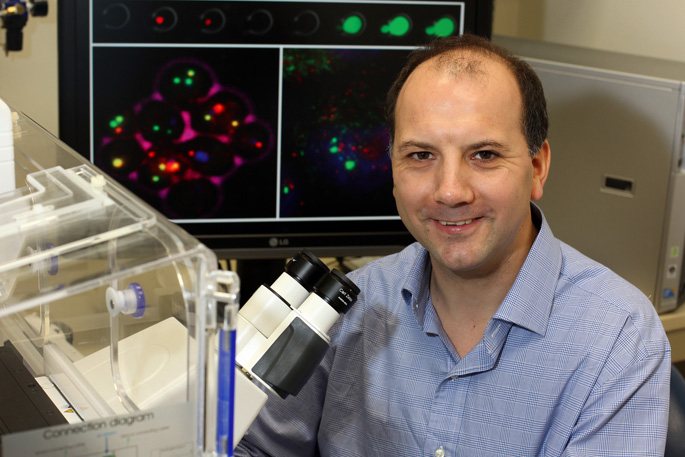
VU recruit’s work lights up genetic ‘dark matter’
They’ve been called “junk DNA” and genetic “dark matter” — the long segments of the human genome (98 percent of it) that do not encode protein. Read MoreOct 11, 2012
-
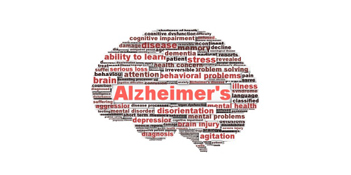
Amish aid search for Alzheimer’s genes
An analysis of Amish populations revealed novel risk genes for late-onset Alzheimer disease. Read MoreOct 11, 2012
-

Complementary and alternative medicine use differs by race, economics
Use of complementary and alternative medicine differs by race and socioeconomic factors, study reports. Read MoreOct 9, 2012
-
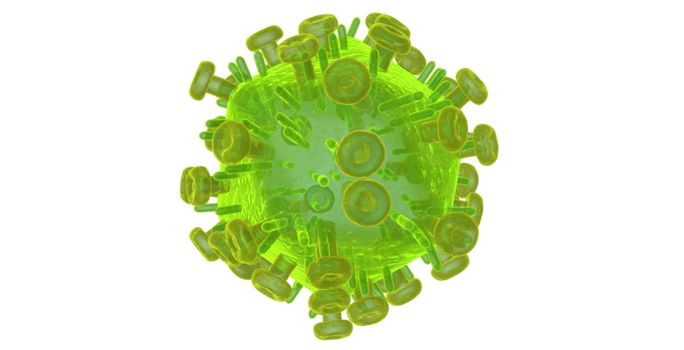
Host proteins can control HIV infection
The protein APOBEC3G contributes to spontaneous control of HIV-1 in vivo and may provide therapeutic benefits. Read MoreOct 5, 2012
-
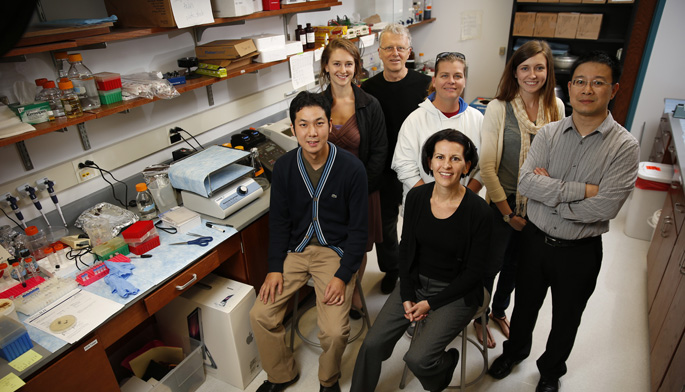
Proteins help flip tumor’s invasive switch
Vanderbilt investigators have identified how two key components of cancer's invasive "switch" — the series of signaling events that turn on a tumor cell’s invasive behavior — work together. Read MoreOct 4, 2012